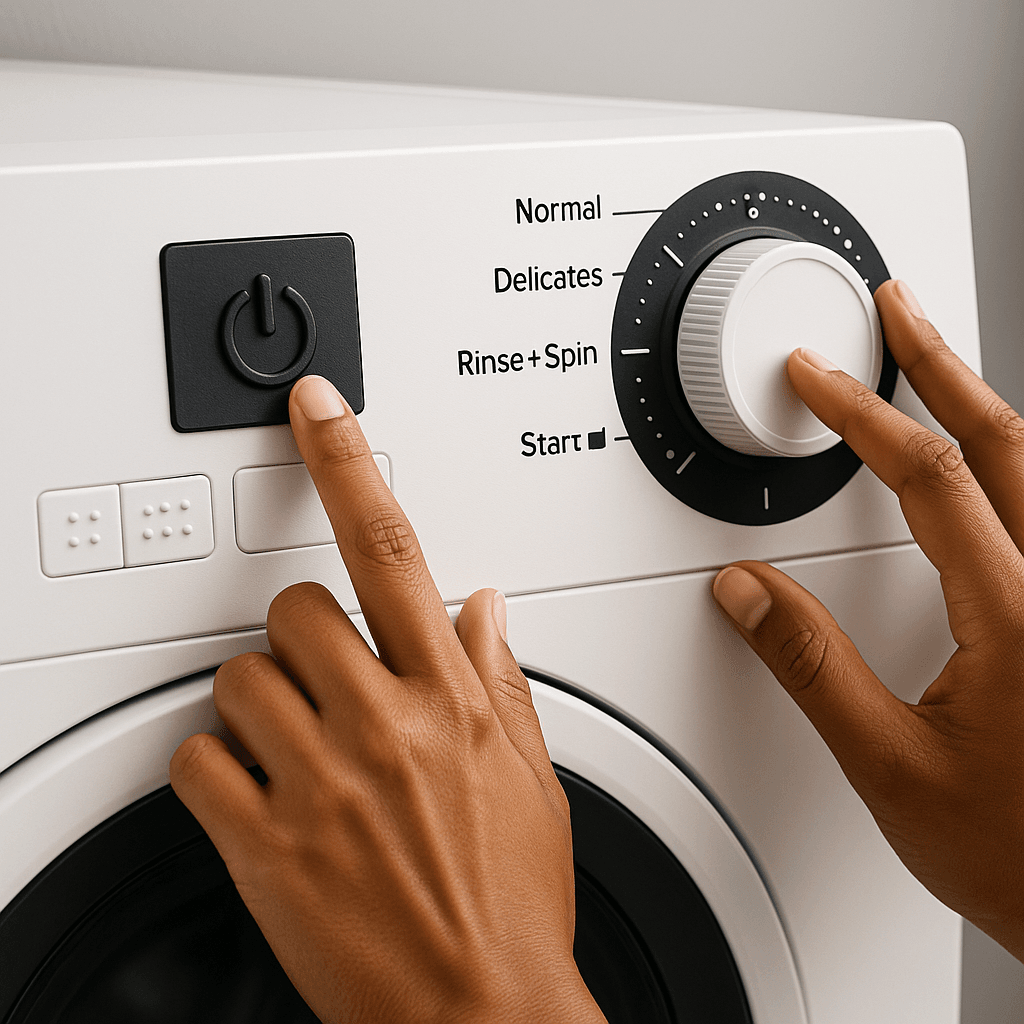Samsung just redefined what accessible technology looks like in the home. The company's "Samsung Inclusive Essentials" design philosophy earned a Gold Award at the 2025 International Design Excellence Awards, proving that inclusive design isn't just good ethics - it's award-winning innovation that benefits everyone who uses appliances daily.
Samsung is tackling one of tech's most overlooked problems: the tiny power buttons and confusing interfaces that make modern appliances harder to use, especially for people with visual impairments. The company's solution just earned recognition at the highest level of design excellence.
The Korean tech giant won a Gold Award at the 2025 International Design Excellence Awards for its "Samsung Inclusive Essentials" concept, marking a shift from traditional accessibility approaches that bolt-on separate features. Instead, Samsung redesigned the fundamental interface elements that every user interacts with daily.
"The latest appliance design has been moving toward simplification - doors that open with a touch instead of a handle and digital displays instead of physical buttons," Dahwe Park from Samsung's Digital Appliances FX Design Group told Samsung Newsroom. "For older adults and those with visual impairments, these changes have made appliances harder to use."
The design philosophy centers on what Samsung calls multimodal feedback - combining shape, texture, color, lighting and sound so users can navigate appliances through multiple senses. Rather than flat printed icons, buttons are embossed and outlined for touch identification. Color-coded caps on water and detergent containers eliminate the need to decipher tiny symbols.
But the breakthrough came from user testing at a local welfare center for people with visual impairments. "One participant who had lost his sight later in life shared how his independence had diminished," explained Hyunbin Shin from Samsung's Design Innovation Group. When the participant traced the embossed buttons, he said, "It may seem like a small detail, but it makes me feel respected and considered. Now I feel that I can use appliances on my own."
That feedback shaped Samsung's rejection of conventional accessibility design, which typically adds separate functions or devices. "User testing has shown that people with visual impairments prefer not to depend on accessories like Braille stickers or add-ons but would rather use the appliance in its original form like everyone else," Park noted.
The timing isn't coincidental. Samsung announced the award on International White Cane Safety Day, established by the World Blind Union to promote rights of people with visual impairments. But the design addresses a broader challenge - about one in every 210 people in South Korea experiences visual impairments, and many more face difficulties from age-related vision changes.


